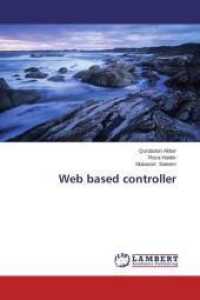Full Description
Published through the Recovering Languages and Literacies of the Americas initiative, supported by the Andrew W. Mellon Foundation
Victoria Howard was born around 1865, a little more than ten years after the founding of the Confederated Tribes of Grand Ronde in western Oregon. Howardʼs maternal grandmother, Wagayuhlen Quiaquaty, was a successful and valued Clackamas shaman at Grand Ronde, and her maternal grandfather, Quiaquaty, was an elite Molalla chief. In the summer of 1929 the linguist Melville Jacobs, student of Franz Boas, requested to record Clackamas Chinook oral traditions with Howard, which she enthusiastically agreed to do. The result is an intricate and lively corpus of linguistic and ethnographic material, as well as rich performances of Clackamas literary heritage, as dictated by Howard and meticulously transcribed by Jacobs in his field notebooks. Ethnographical descriptions attest to the traditional lifestyle and environment in which Howard grew up, while fine details of cultural and historical events reveal the great consideration and devotion with which she recalled her past and that of her people.
Catharine Mason has edited twenty-five of Howard's spoken-word performances into verse form entextualizations, along with the annotations provided by Jacobs in his publications of Howard's corpus in the late 1950s. Mason pairs performances with biographical, family, and historical content that reflects Howardʼs ancestry, personal and social life, education, and worldview. Mason's study reveals strong evidence of how the artist contemplated and internalized the complex meanings and everyday lessons of her literary heritage.
Contents
List of Tables
Preface
Introduction: Interpreting, Editing, and Valorizing Traditional Works from Ethnographical Recordings
Personal Landscapes
The Wagʷə́t
NÁyma ganÚłayt wagəŠkix (I Lived with My Mother's Mother)
Summer in the Mountains
My Grandmother Never Explained Childbirth to Me
Weeping about a Dead Child
A Molale Hunter Who Was Never Frightened
A Shaman Doctored Me for My Eyes
Ičə́čġmam ganẋÁtẋ aġa DuŠdaq ningidə́layt (I Was Ill, DÚŠdaq Doctored Me)
NÁyka kʷalÍwi wÁgəlxt (I and My Sister-Cousin)
A Tualatin Woman Shaman and Transvestite
A Shaman at My Mother's Last Illness
Historical Landscapes
Spearfishing at Grand Ronde
Slaughtering of Chinook Women
Captives Escape Snake Indians
WÁlxayu ičÁmxix gałẋÍlayt (Seal and Her Younger Brother Lived There)
WiŠə́liq iŠq'Íxanapx gaŠdaŠgÚqam (Two Maidens, Two Stars Came to Them)
WÁsusgani and WačÍnu
Inventions and New Customs as Sources of Amusement
Cultural Landscapes
IŠknÚłmapx (Two Grass Widows)
Restrictions on Women
Laughing at Missionaries
The Honorable Milt
IŠk'ÁŠkaŠ ŠkÁwxaw gaŠdəẋuẋ (Two Children, Two Owls, They Became)
Joshing during a Spirit-Power Dance
Fun-Dances Performed by Visitors
Notes
References
Index







